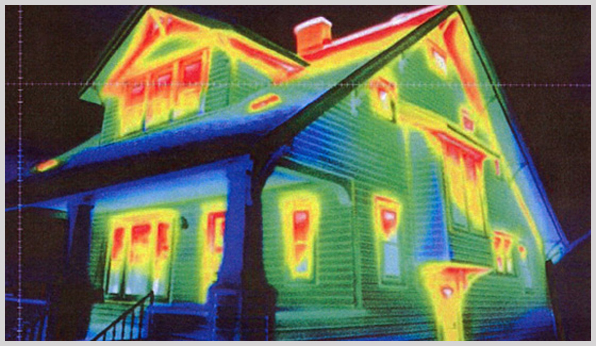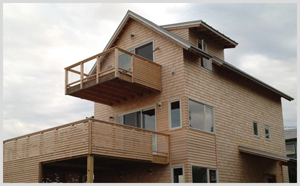Village Green - Maine Boats, Homes & Harbors Show
The Annual Maine Boat & Home Show is typically held the second weekend of August. Gates open at 10 a.m. daily
 An energy audit that includes the use of thermal imaging technology is a good first step toward a more comfortable, efficient home environment.
An energy audit that includes the use of thermal imaging technology is a good first step toward a more comfortable, efficient home environment. Net Zero House
Net Zero HouseAny living or working space has several conditions to manage simultaneously, and does so with varying degrees of success. Moisture management, energy consumption, the surrounding environment, and site orientation all contribute to the way a building performs the job of providing comfort. And of course, we want performance over multiple decades with minimal maintenance. Just as with a car, the moving parts need attention every few years and will be replaced when worn beyond repair. But unlike a car, a home is expected to last for generations. There are several reasons to consider a performance-based approach to building and renovating our homes, but none outweigh efficiency. We should expect our living spaces to moderate temperatures without the need for us to spend thousands on a heating or cooling source each season. It should manage moisture both inside and out, without damage occurring. The home must also provide a healthy indoor environment with air quality; something non-toxic finishes can help with. Last, but certainly not least, it should also be beautiful. Green design does not have to forgo style. The green building of new homes, as well as the retrofitting of existing ones (important here in New England, where there is a lot of older/historic/antique housing stock), is a science that takes into account all the features of a home and the site where it is built. With an eye toward performance and comfort, it is a common-sense approach to the ever-increasing energy challenge we will face in the coming decades. Whether you are building new or renovating your existing home consider this: You will live in your home no matter what methods you choose to use. Why not make it perform to a higher set of standards? You will benefit your family, yourself, and future owners as the home gets passed on to someone new along the lines of time. To put some of this into practice in your own home, try the following.
|
|
|
|
|
|










